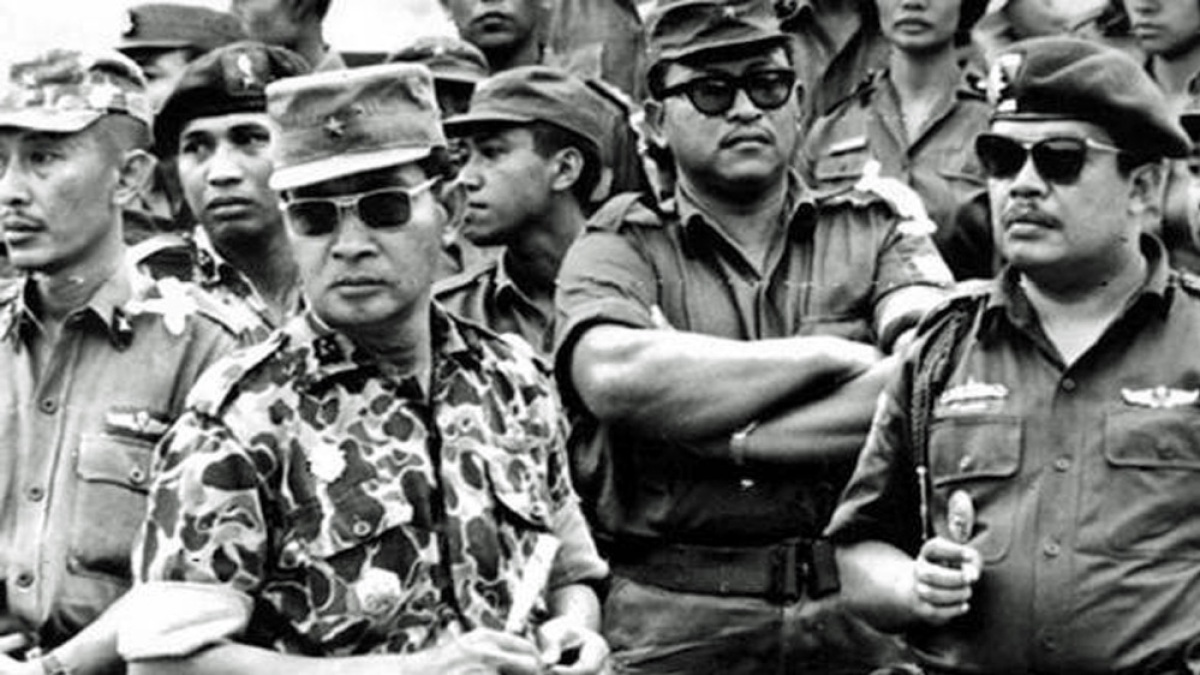Indonesian president says ‘strongly regrets’ past rights abuses

More than 500,000 people are estimated to have been killed in violence from the mid-1960s after General Soeharto seized power.
Indonesian President Joko Widodo has expressed regret for “gross human rights violations” that occurred in his country’s past, including a violent anti-Communist purge in the 1960s and the disappearance of student protesters in the late 1990s.
More than half a million people were killed across Indonesia in violence that began in the mid-1960s when then-General Soeharto and the military seized power following a failed Communist coup.
A million or more people were jailed, suspected of being communists, during the bloody episode in Indonesia’s history, which ushered in the decades-long rule of dictator Soeharto.
“With a clear mind and a sincere heart, I as the leader of this country, admit that gross human rights violations have happened in several incidents and I regret they happened very much,” Widodo said in a speech at the state palace in the capital Jakarta on Wednesday.
The president, commonly known as Jokowi, cited 11 other incidents, spanning a period between 1965 and 2003 – prior to his tenure as leader – including the shooting deaths and abduction of students during protests in 1998 that brought down Soeharto.
“I have sympathy and empathy for the victims and their families,” Widodo said.
He said the government was trying to “rehabilitate” the rights of victims “without negating the judicial resolution”, though he did not specify how that would be achieved.
Students leading the protests in 1998 were abducted and disappeared and there were also many victims among the ethnic-Chinese community, a minority in Indonesia, who were resented for their perceived wealth.
Widodo also acknowledged rights abuses in Indonesia’s restive easternmost province of Papua, including a 2003 army and police operation that left dozens of civilians dead and where officers were accused of murder, torture and abduction.
Papua has been the scene of a decades-old rebellion aimed at gaining independence from Indonesia, which took control of the former Dutch colony in the 1960s.
Human rights groups said Widodo’s expression of regret, like several other Indonesian leaders before him, did not go far enough as acknowledgement and expression of regret were not sufficient without crimes being legally resolved in court and perpetrators tried.
Indonesia’s late President Abdurrahman Wahid had also apologised for the 1960s bloodshed, while President B.J. Habibie formed a team to investigate the violence in 1998.
Rights activists also noted that cases had been thrown out by the Attorney General’s Office, which is tasked with investigating rights violations.
“The recognition is not enough. It should not have been only regret, but also apology,” Usman Hamid, director of Amnesty International Indonesia told Agence France-Presse.
Any expression of regret must also include a reaffirmation that “serious crimes of the past need to be resolved rightly and justly through judicial means,” he said.






